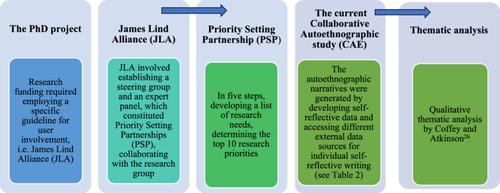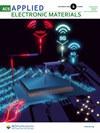Between Public Guidelines for User Involvement and Ideals About Free Research: Using Collaborative Autoethnography to Explore Researcher Experiences From a User Involvement Process
Abstract
Background and Aim
User participation is a prerequisite for receiving research funding in healthcare in Norway. Despite many positive benefits, studies report challenges from users' and researchers' perspectives. Limited knowledge exists concerning researchers' experiences in scenarios where the users are professionals within healthcare and research. The aim of this retrospective study was to explore and reflect on personal experiences as researchers from a process of planning and developing research questions for a PhD project, following the James Lind Alliance guidelines, which were a requirement for funding. We focused on how the process of collaboration with a specific group of users influenced the researchers' sense of selves.
Design and Method
We used a qualitative design based on collaborative autoethnography, exploring personal experiences from a sociocultural point of view. Two of the three researchers in the team recollected their experiences from the user involvement process while applying the James Lind Alliance guidelines. We used different data sources to develop two autoethnographic narratives. The narratives were analysed using thematic analysis.
Results
The autoethnographic narratives demonstrate the complexity of user involvement from the researchers' perspectives. We identified four themes in the analysis: intrinsic and extrinsic motivation, competing paradigms, hierarchy and dual roles. The accounts illustrated the researchers' ambivalence within the process, indicating that they feared a loss of control over the direction of the research project. The narratives visualised a struggle to appear as credible researchers, illustrating how the involvement of a specific group of users and adherence to a specific guideline for user involvement influenced the researchers' experiences of their roles and identities in the collaboration.
Conclusion
The results point to the relevance of the sociocultural backdrop; researchers might become frontline providers of policy implementation in research, balancing tensions between regulatory constraints, user involvement and researchers' professional identity and research ideals, when a specific, detailed procedure for user involvement is required.
Patient or Public Contribution
Two user panels comprising participants from clinical practice, education and research, along with a service user, collaborated in the planning and development of research questions for a PhD project. This autoethnographic study elaborates this process.


 求助内容:
求助内容: 应助结果提醒方式:
应助结果提醒方式:


